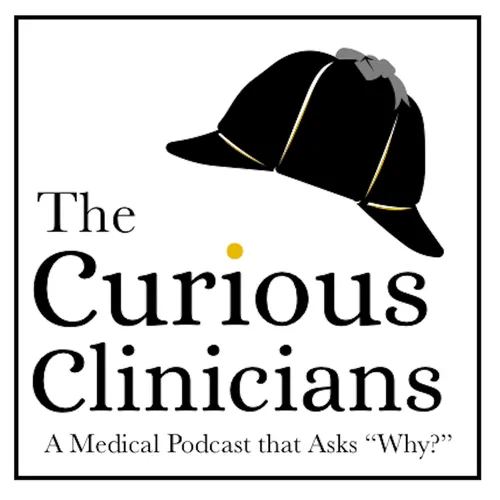
The Curious Clinicians
The Curious Clinicians is a medical podcast that asks "why?". Why do diseases present in certain ways? What are the mechanisms of treatments we use? Why does the human body function as it does? Join us to explore these questions and many more.
- Update frequency
- every 13 days
- Average duration
- 23 minutes
- Episodes
- 135
- Years Active
- 2020 - 2025
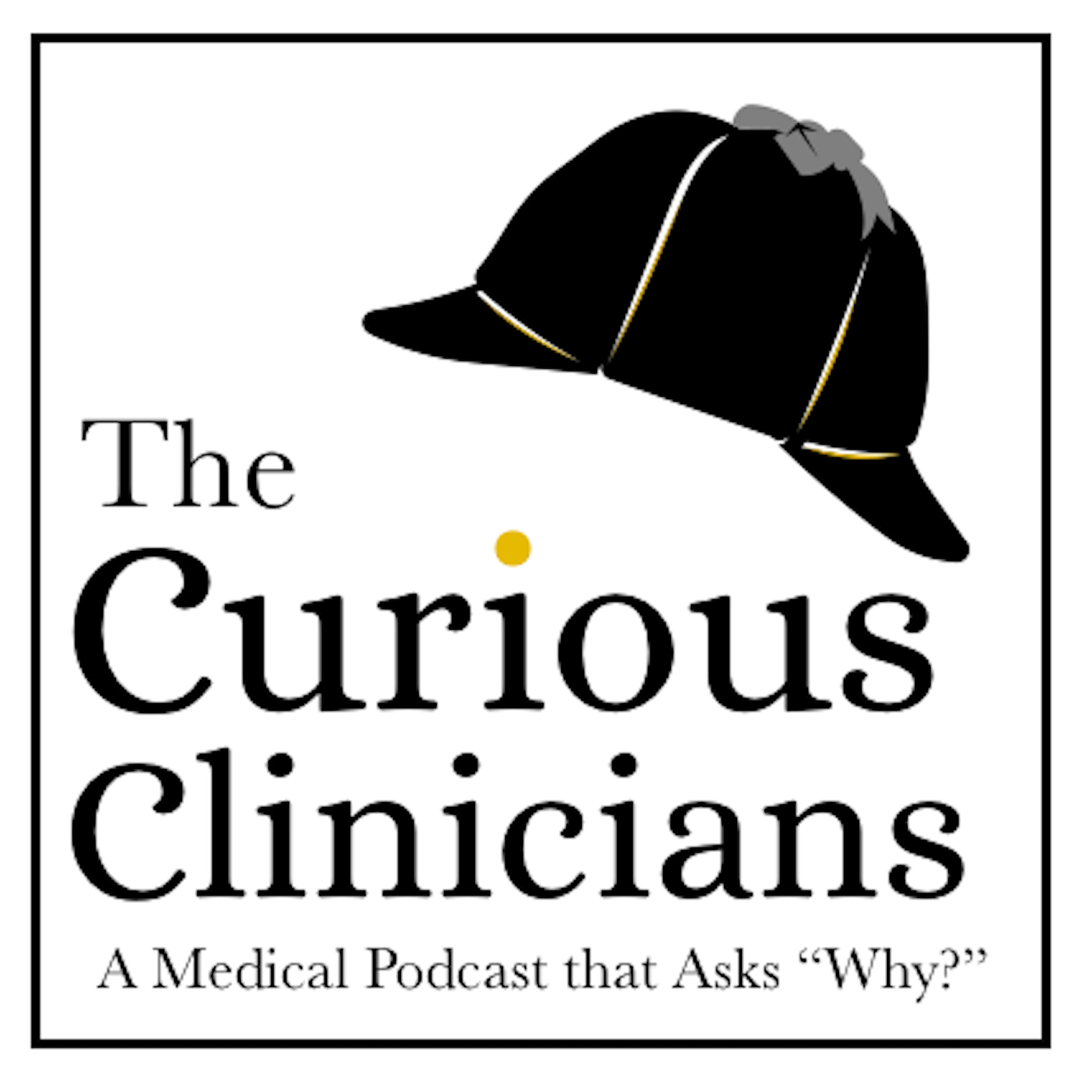
67 - Crossing a Barrier
In this episode, The Curious Clinicians investigate the mysterious blood brain barrier, and how dexamethasone has a seemingly miraculous ability to treat cerebral edema caused by brain tumors.
Read …

66 - More Right Than Left
In this episode, The Curious Clinicians investigate why tricuspid valve endocarditis is more common in persons who inject IV drugs.
Read the show notes here.
Click here to obtain AMA PRA Category 1 …

65 - Taking Things to Heart
In this episode, The Curious Clinicians take things to heart and unpack both why rheumatic heart disease so often involves heart valves, and why the mitral valve is by far the most commonly affected.
…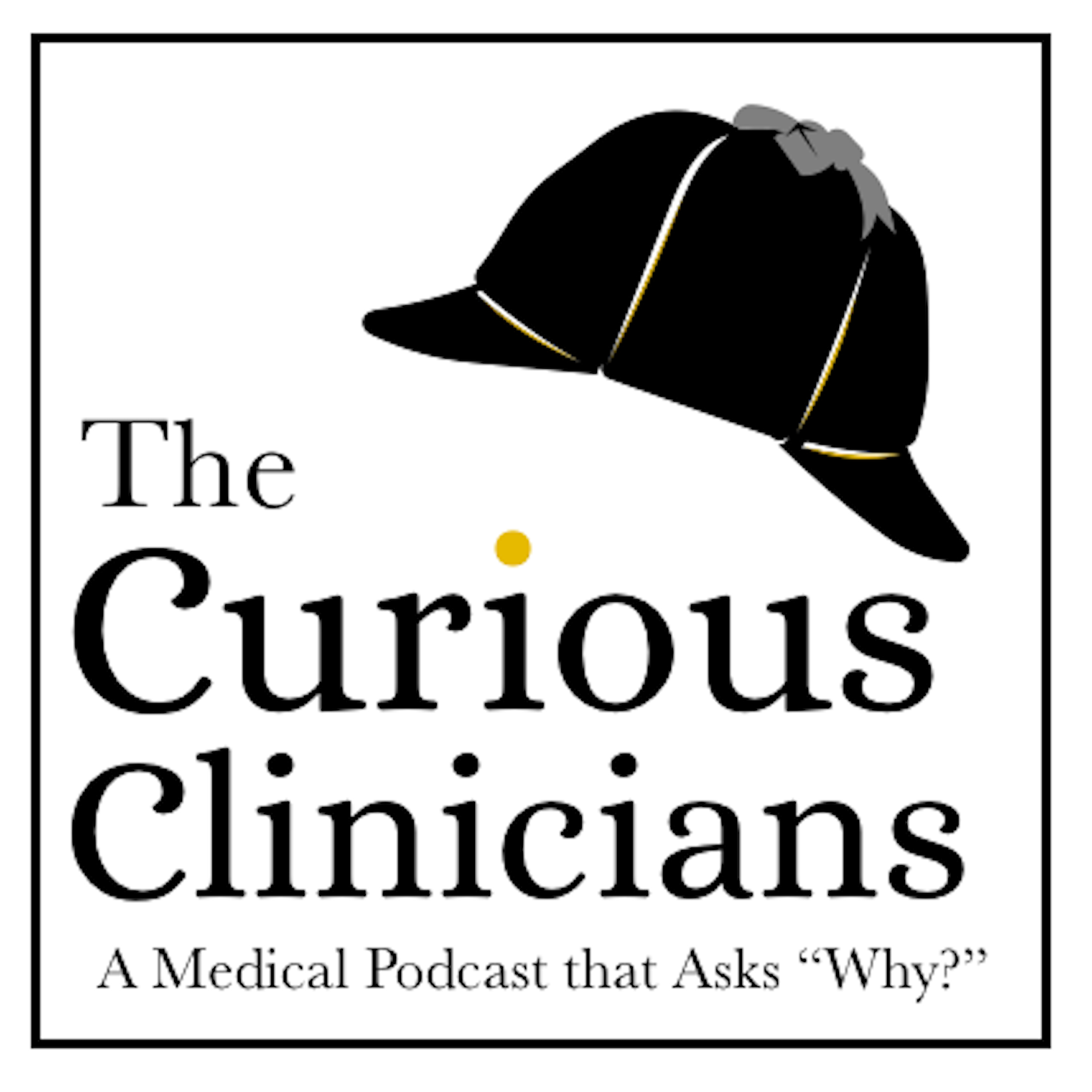
64 - Stopping the Shakes
In this episode, The Curious Clinicians investigate why meperidine treats rigors.
Read the show notes here.
Click here to obtain AMA PRA Category 1 Credits™ (0.5 hours), Non-Physician Attendance (0…
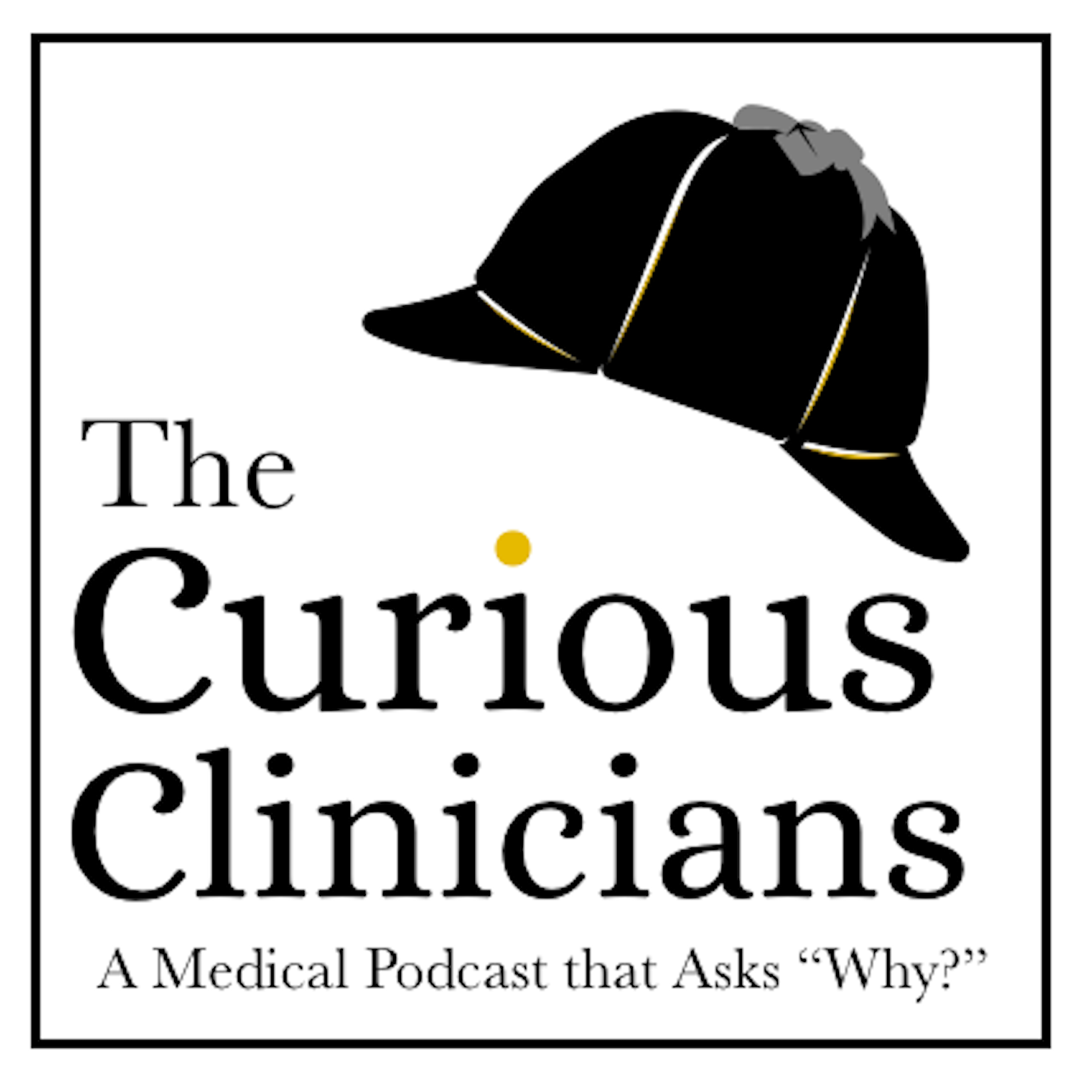
63 - Getting Swol
In this episode, The Curious Clinicians examine why weight training increases muscle size.
Read the show notes here.
Click here to obtain AMA PRA Category 1 Credits™ (0.5 hours), Non-Physician Atte…
![[Reboot] 49 - Curious Incidents in the Nighttime](https://static.libsyn.com/p/assets/c/5/d/5/c5d581f2692899b227a2322813b393ee/CuriousCliniciansThumbnail-20230111-ai48r01kx9.png)
[Reboot] 49 - Curious Incidents in the Nighttime
The Curious Clinicians took a quick holiday break and will be back with new episodes next week!
This episode, originally posted May, 2022, explores why obstructive sleep apnea can cause nocturia.
Che…

62 - Connected Bilirubin
In this episode, The Curious Clinicians examine why patients with liver injury or dysfunction have conjugated hyperbilirubinemia. Why is this particular function (conjugation) seemingly spared in liv…
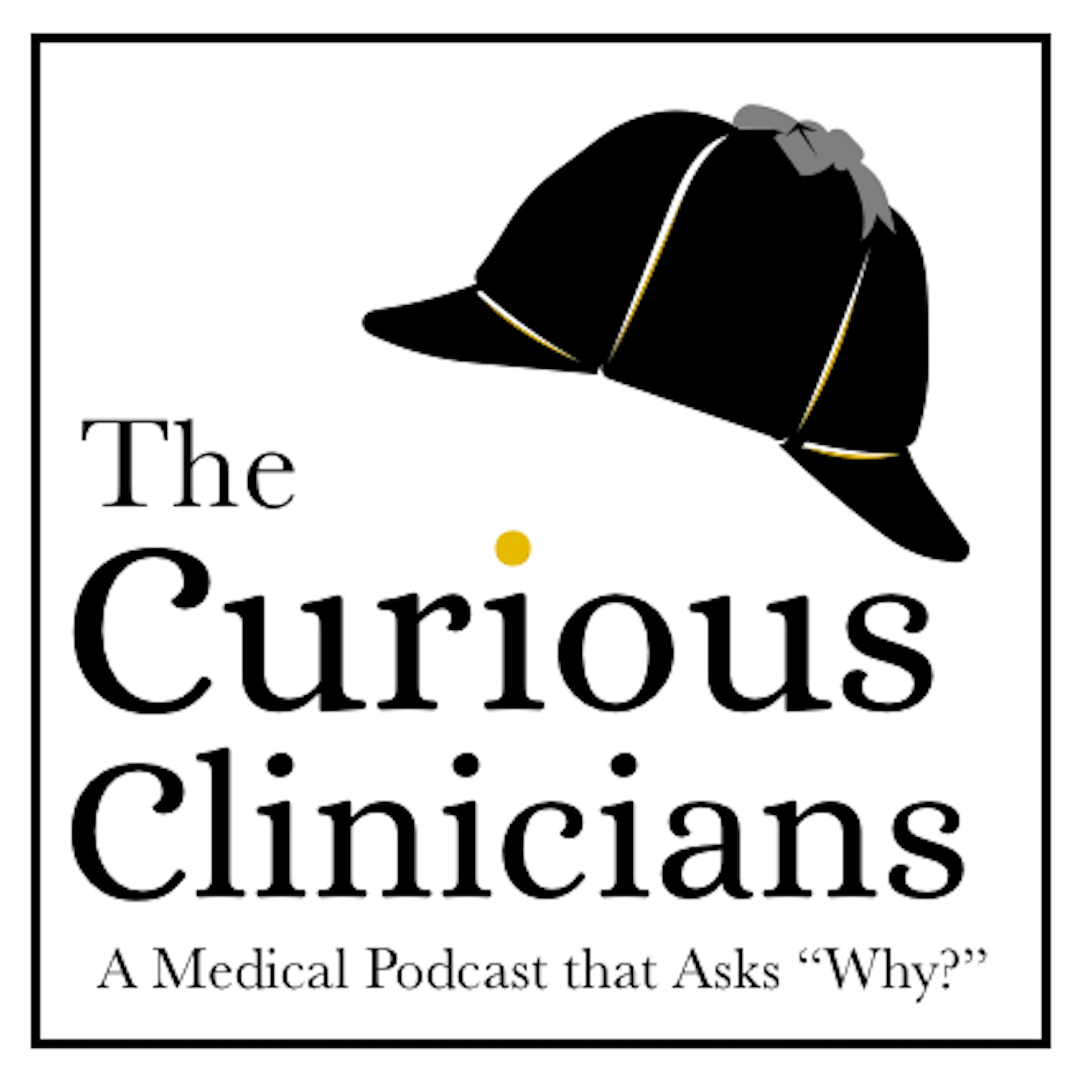
61 - Of Ticks, Alpha-gal, and Red Meat Allergies
In this episode, The Curious Clinicians tell the alpha-gal story, delving into the unsettling meat allergies after tick bites, ancient viruses, allergic reactions to an anti-cancer antibody, and xeno…
![[Reboot] 38 - Thanksgiving & the Food Coma](https://static.libsyn.com/p/assets/9/0/b/1/90b1d07825f3f22716c3140a3186d450/CuriousCliniciansThumbnail-20221123-lxsfbz0yl3.png)
[Reboot] 38 - Thanksgiving & the Food Coma
In this reboot of episode 38, just in time for Thanksgiving, The Curious Clinicians examine whether tryptophan from turkey actually causes the infamous Thanksgiving food coma. The answer might surpri…

60 - (Heart)Failing to Excrete Sodium
In this episode, The Curious Clinicians explore why heart failure with preserved ejection fraction leads to sodium retention.
Check out Tony's companion tweetorial here.
Click here to obtain AMA PR…
![[Reboot] 30 - Cilantro and Soap](https://static.libsyn.com/p/assets/7/f/3/b/7f3ba3bedacba1e940be95ea3302a6a1/CuriousCliniciansThumbnail-20221026-l83qtnqmgd.png)
[Reboot] 30 - Cilantro and Soap
In this reboot of episode 30, The Curious Clinicians investigate why some people absolutely love cilantro while others taste soap if they try to eat it. Enjoy!
Check out the show notes on our website…

58 - Gutting a Pearl
Is oral furosemide absorption affected by “gut edema” in acute heart failure? In this episode, The Curious Clinicians break down the evidence around this age-old medical teaching pearl.
Check out the…
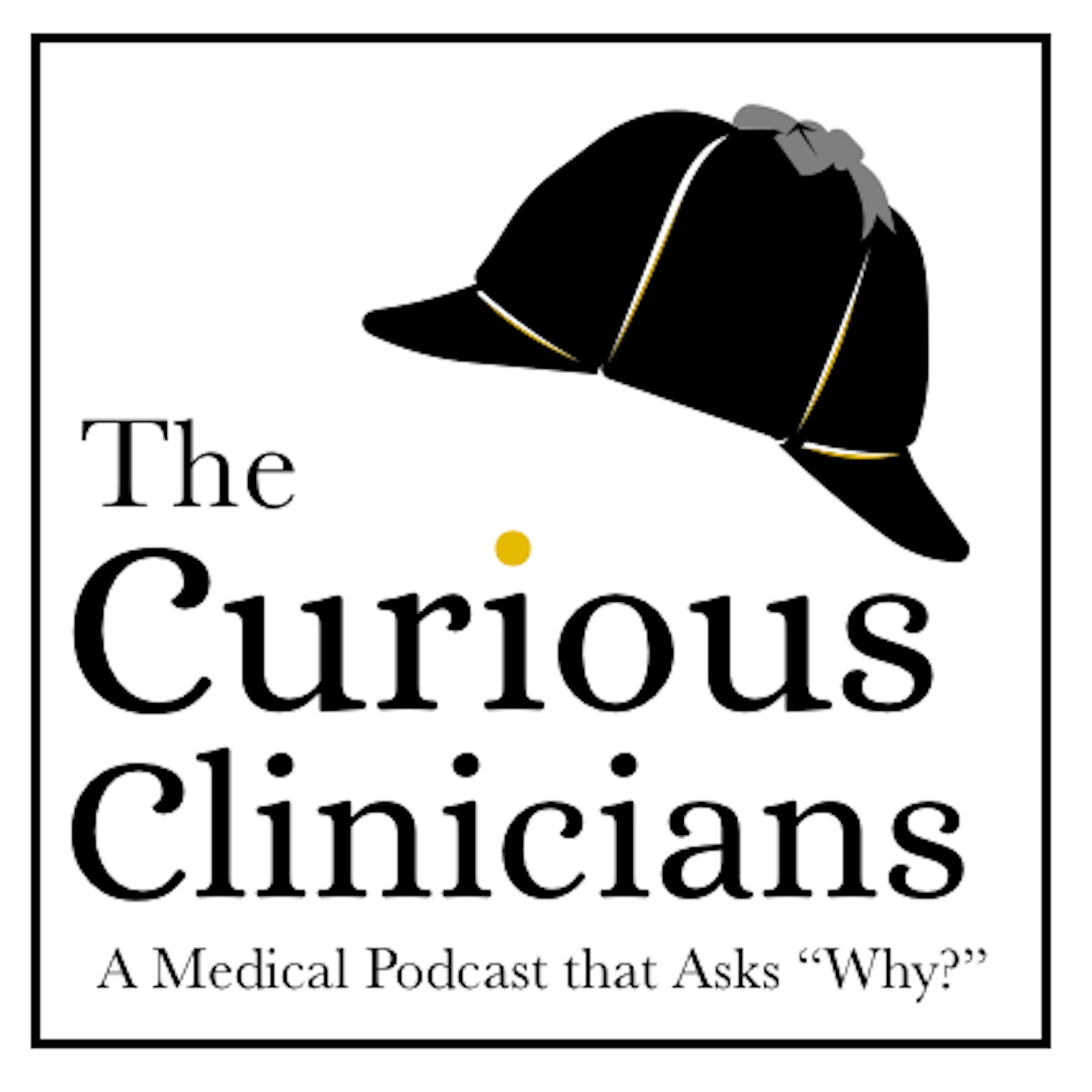
57 - The Acetabular Ache
On this episode, The Curious Clinicians explore why and how tumors in bones cause pain, with surprising results.
Check out the show notes here.
Click here to obtain AMA PRA Category 1 Credits™ (0.5…
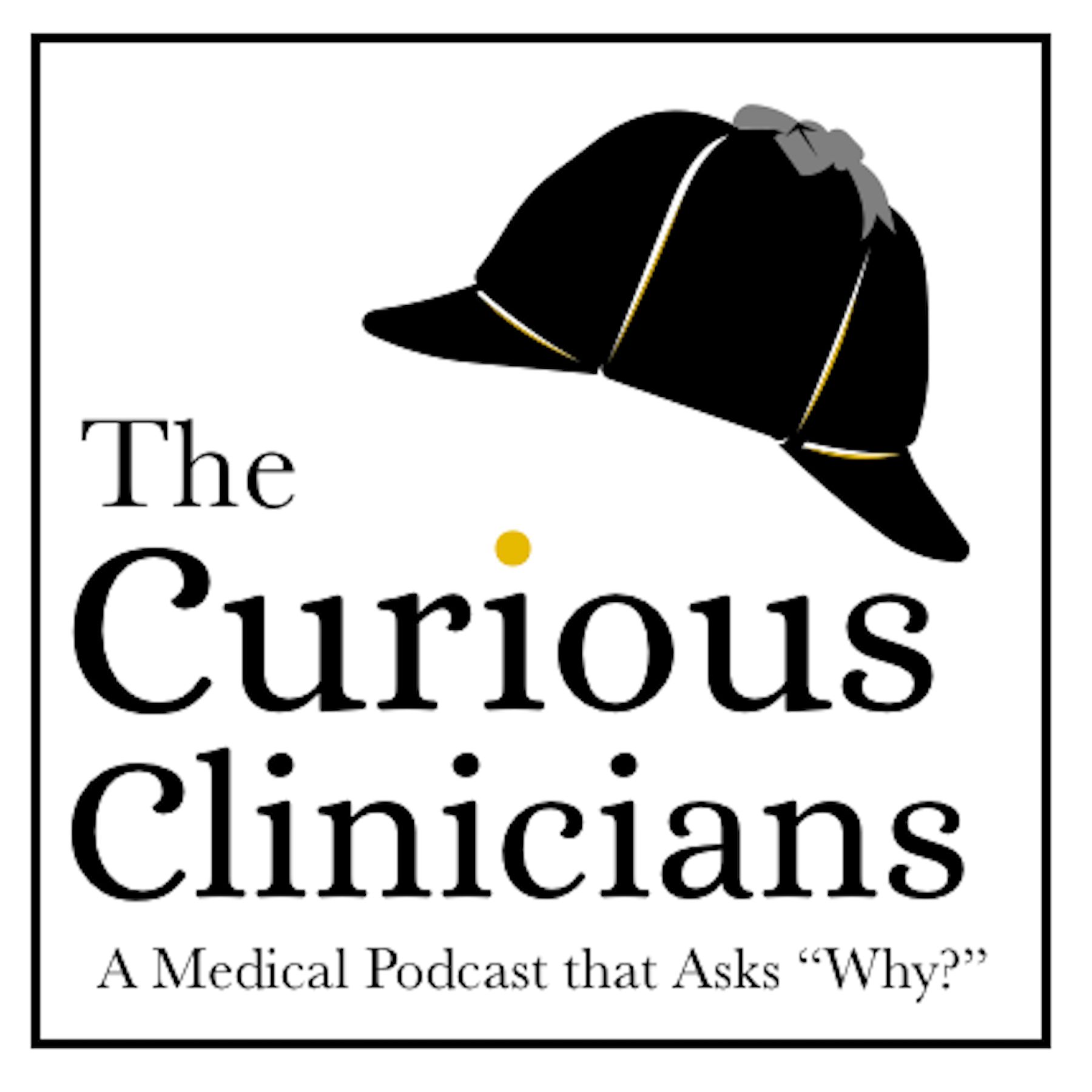
56 - Trigging Out
On this episode, The Curious Clinicians examine why elevated triglycerides in the blood can cause pancreatitis.
Check out the show notes here.
Click here to obtain AMA PRA Category 1 Credits™ (0.5 …
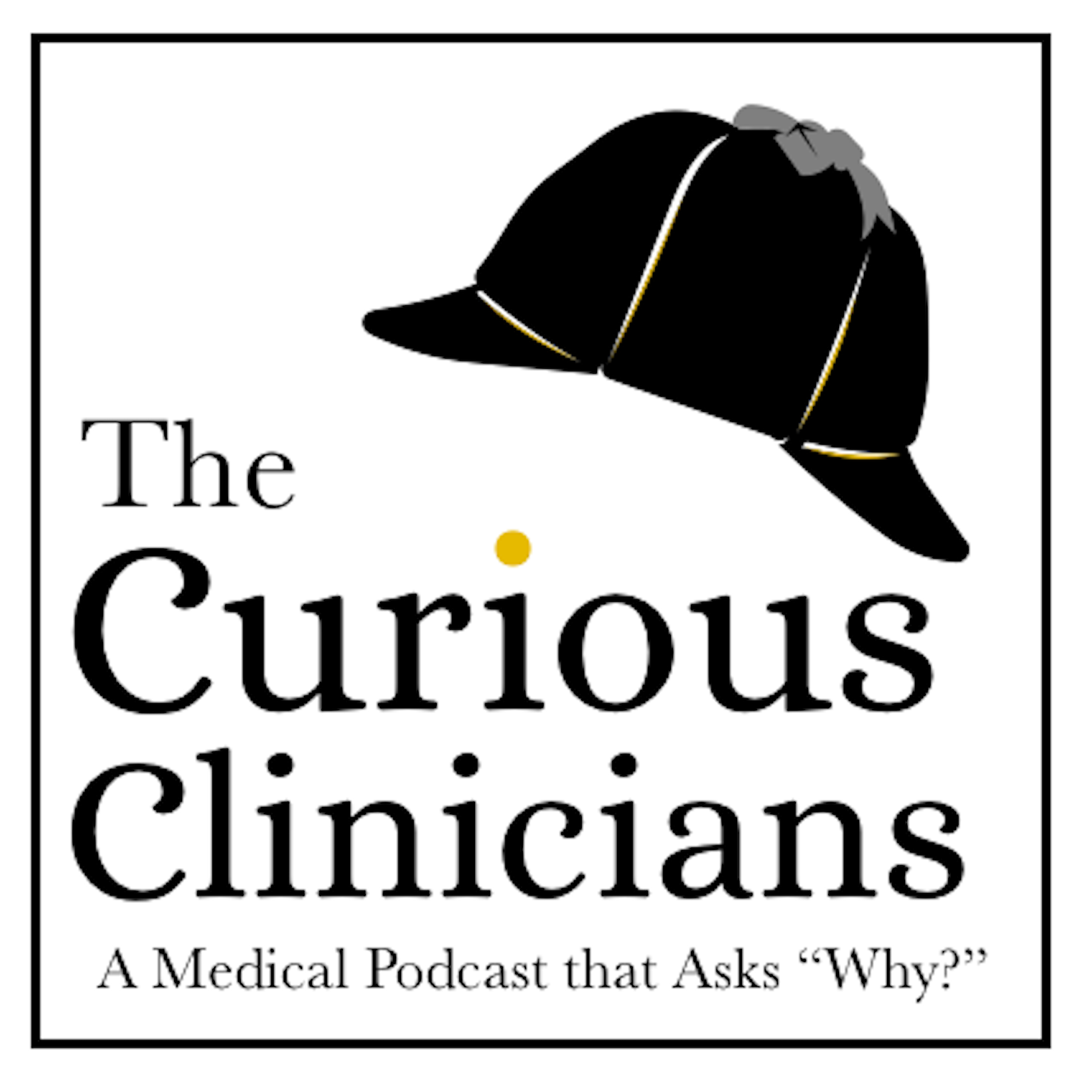
55 - A Cute Pigment
On this episode, The Curious Clinicians investigate why rhabdomyolysis very commonly causes acute kidney injury, while hemolysis does not.
Check out the show notes here.
Click here to obtain AMA PR…
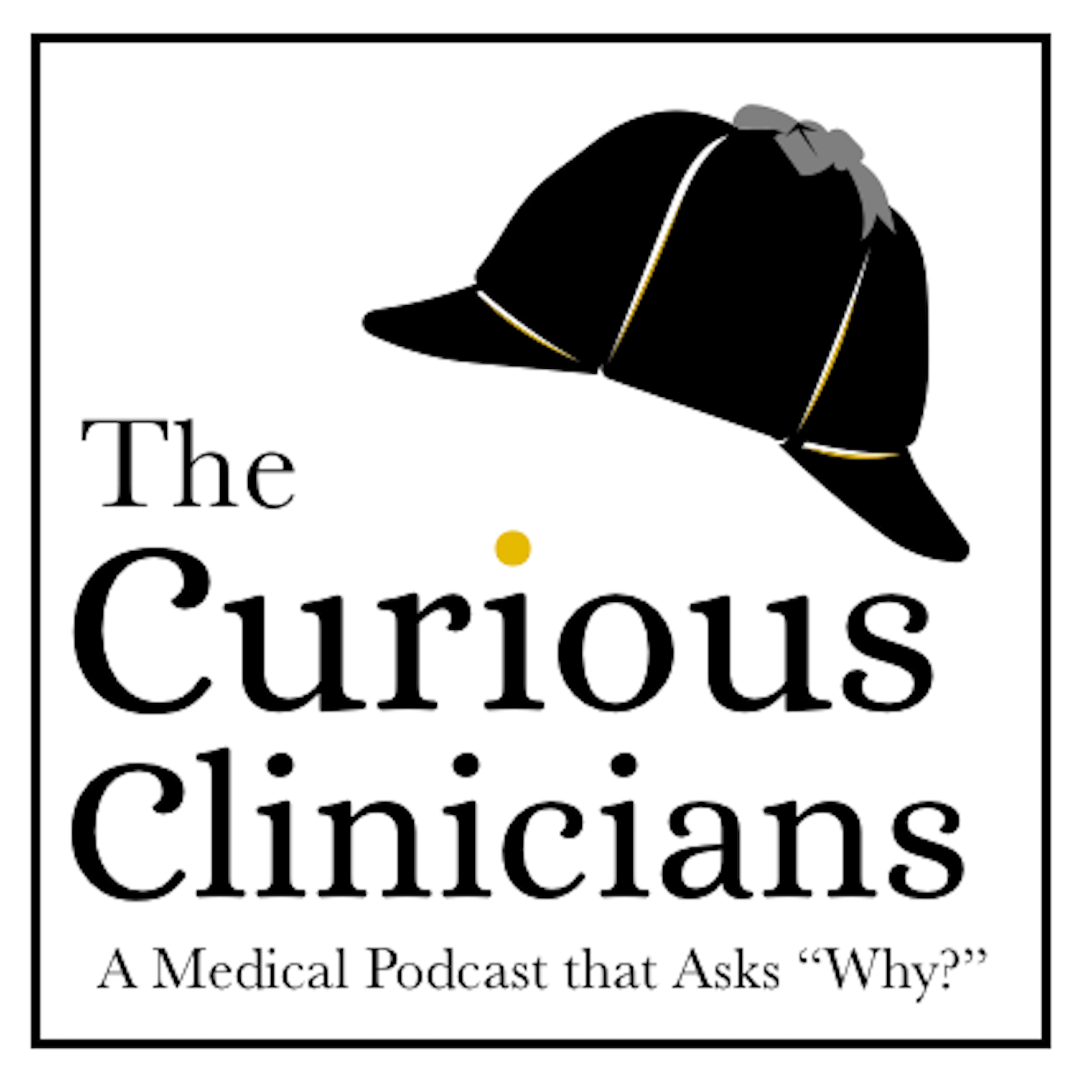
54 - A Lincoln Theory
The Curious Clinicians outline a new theory about what, if any, genetic syndrome Abraham Lincoln may have had.
Check out the show notes here.
Click here to obtain AMA PRA Category 1 Credits™ (0.5 ho…
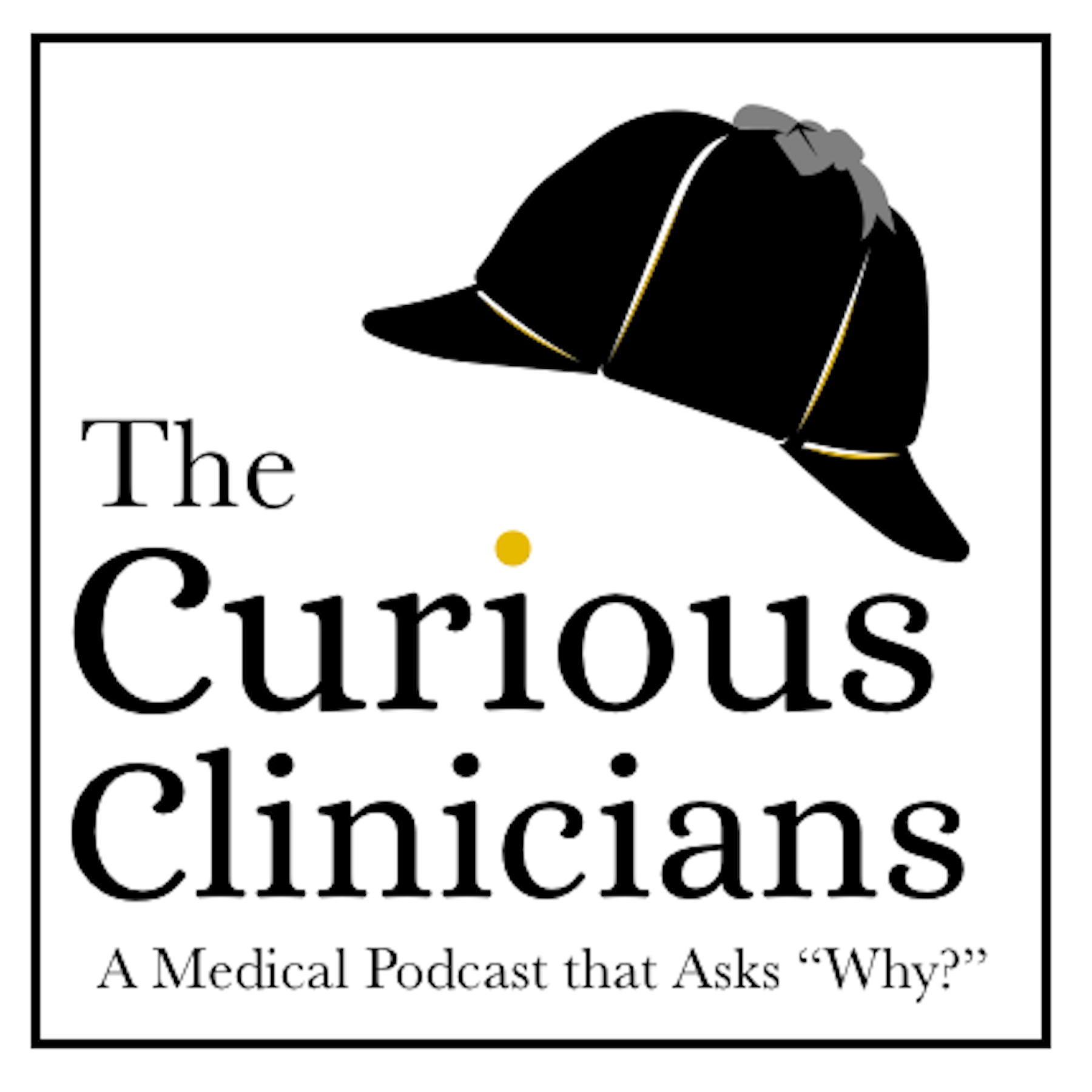
53 - Very/Qurious Hypoxemia
The Curious Clinicians look into why pulmonary emboli cause hypoxemia. The answer may surprise you…
Check out the show notes here.
Click here to obtain AMA PRA Category 1 Credits™ (0.5 hours), Non-P…
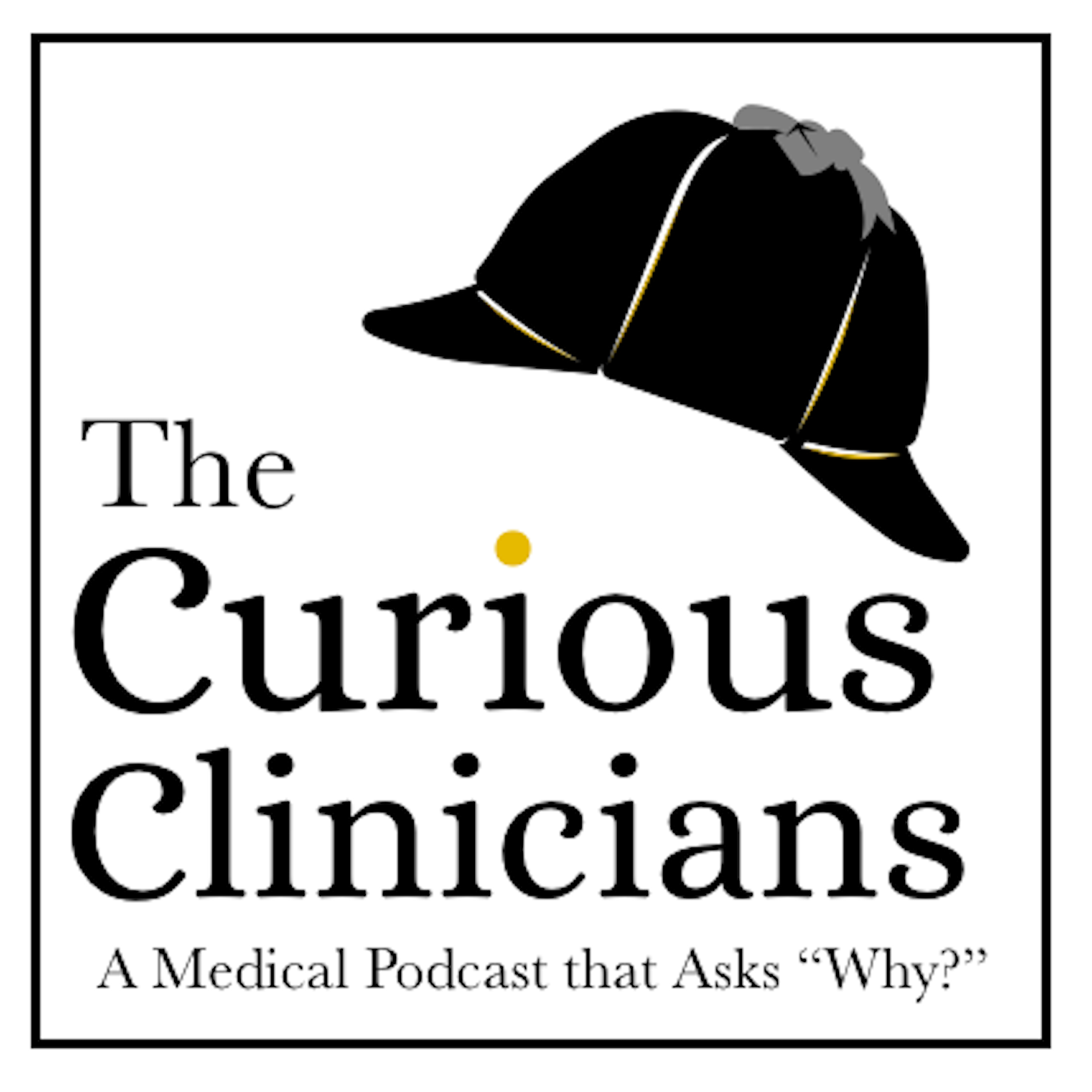
52 - Way Back Wenckebach
The Curious Clinicians learn about why Wenckebach heart block has such a unique morphology. They also explore how Karel Frederik Wenckebach first identified the rhythm in a patient, years before the …

51 - Replete with Kare
The Curious Clinicians unpack why potassium is often repleted to levels >4 mEq/L.
Check out the show notes here.
Click here to obtain AMA PRA Category 1 Credits™ (0.5 hours), Non-Physician Attendanc…
